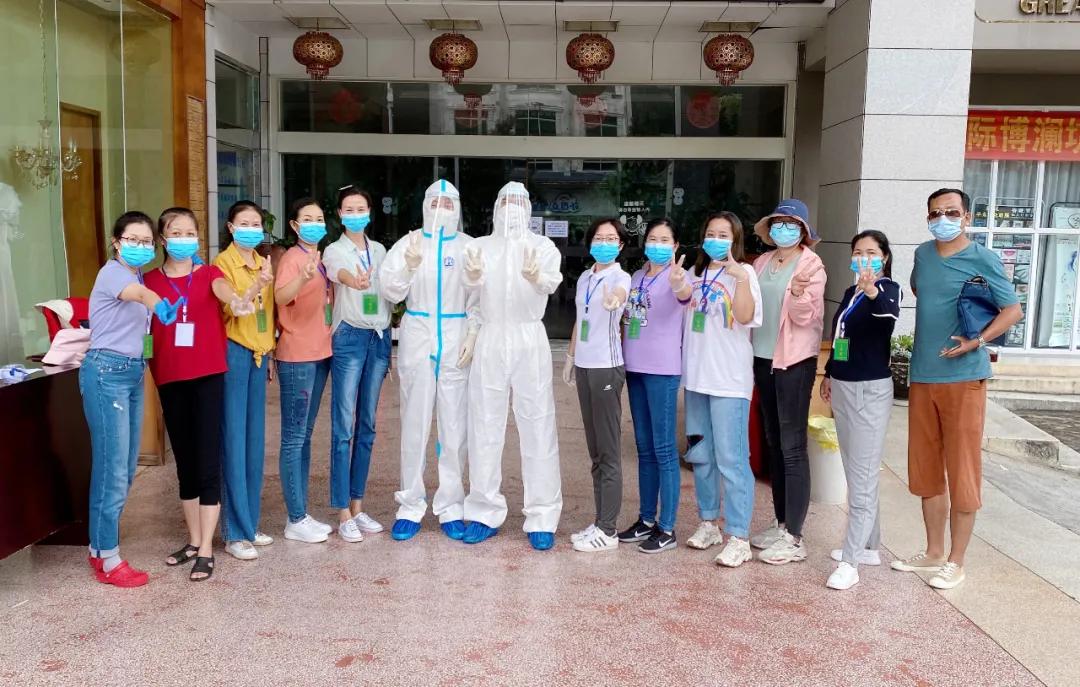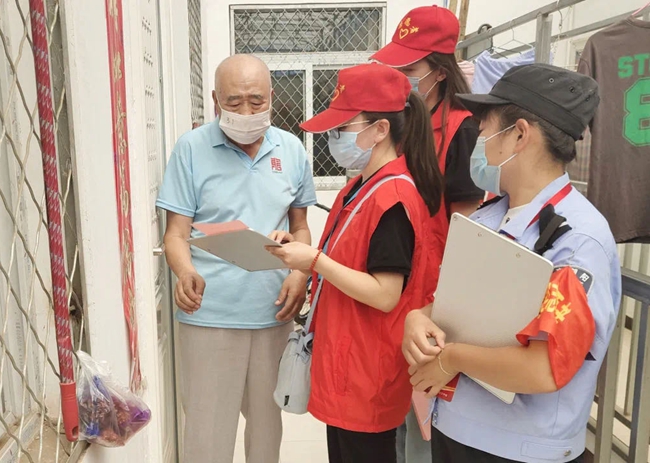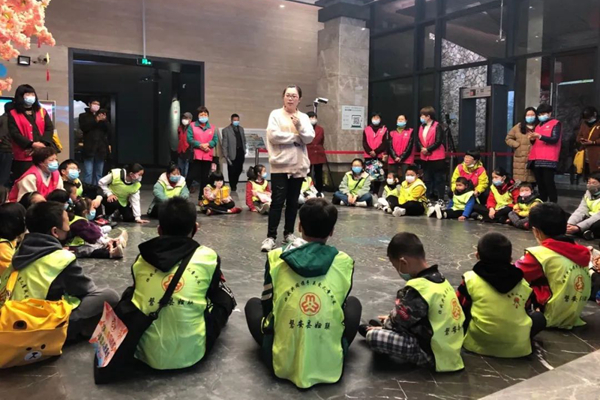
China's Young Medics Show Responsibility, Perseverance in Fighting Epidemic
TIANJIN, March 9 (Xinhua) — China's young medical workers have showed high responsibility and perseverance in the battle against the coronavirus.
Liu Rui, a 26-year-old nurse from Tianjin Medical University Cancer Institute and Hospital, was among the first batch of medical staff from northern China's Tianjin Municipality dispatched to Wuhan, the epicenter of the virus outbreak, on Jan. 26.
Covered under masks, gloves, goggles and protective suits most of the time in the ward, Liu was never far from her patients' beds, checking their names, delivering medicine, taking their temperatures and monitoring the oxygen saturation of blood during her shifts.
"The goggles quickly fog up blurring my sight, making it more difficult to insert a needle. So I have to concentrate even more," she said. After hours of working, she always felt exhausted both physically and mentally.
However, when she saw the anxiety and fear in patients' eyes turn to confidence and hope, Liu thought everything she had done was worthwhile. "What I can do is to help them as much as I can."
Liu said the patients in Wuhan were very heart-warming and cooperative. Even though it was sometimes hard to understand what the patients were saying due to their dialects, their hearts became even closer by communicating with handwriting.
"Some patients asked me if I felt homesick and I said sure. I told them to stay upbeat about the treatment and get better soon, and we will all go home!" Liu said.
Besides Liu, many post-90s in Tianjin voluntarily applied to come to the front lines to fight the epidemic.
Sun Peichao, a male nurse, postponed his wedding ceremony and came to a makeshift hospital converted from a sports center in Wuhan. "My wife is a nurse too, and she understands me. We post-90s have grown up, and we hope to do something for our country."
Xue Jian, a 26-year-old colleague of Sun, also worked in the same hospital with him in Wuhan. He and other medical staff led the patients in practicing Baduanjin, a traditional Chinese aerobics, and organized patients to sing positive songs.
"Exercising can help with their recovery, and singing songs may build up their confidence," Xue said.
Moreover, female medical workers have also shown their powerful will, professionalism, selfless devotion and great resilience alongside their male peers.
Shi Qiu, a physician who was married two months ago, delayed her honeymoon and decisively joined the Tianjin medical team to aid Wuhan.
"I can deal with symptoms such as abdominal pain, fever and cough, and I didn't even hesitate to come here," Shi said.
One of Shi's companions in the battle is 28-year-old nurse Zhang Xingyang.
"Single, with healthy parents and no baby, I applied to work on the frontline, and I believe I can make it," Zhang said. "Everyone protected us 17 years ago when fighting SARS, now it's time for us to pay it back."
The makeshift hospital that Shi and Zhang worked for was suspended Sunday. "Victory lies ahead!" Zhang said.
Among more than 40,000 medical workers from across the country who have joined the treatment of patients in the hardest-hit province of Hubei, about 12,000 are post-90s or even post-00s, according to Ding Xiangyang, deputy secretary-general of the State Council.
They have become the backbone, pride and hope of the whole country in combating the virus, Ding said.
(Source: Xinhua)
- Women Workers and Volunteers Contribute to Citywide Nucleic Acid Test in Qingdao
 Ruili Women's Federation in Yunnan Joins Anti-COVID-19 Epidemic Battle
Ruili Women's Federation in Yunnan Joins Anti-COVID-19 Epidemic Battle Chaoyang Women's Federation in Beijing Makes All-Out Efforts in Fight Against Virus
Chaoyang Women's Federation in Beijing Makes All-Out Efforts in Fight Against Virus- Women's Federations in C China's Hubei Help Women's Enterprises Resume Work
- County Heads, Women's Federations' Presidents Promote Agricultural Products via Livestreaming Shows
 Medic's Stories About Anti-Virus Fight Inspire Left-Behind Children at Women's Federation's Activity
Medic's Stories About Anti-Virus Fight Inspire Left-Behind Children at Women's Federation's Activity

 京公网安备 11010102004314号
京公网安备 11010102004314号